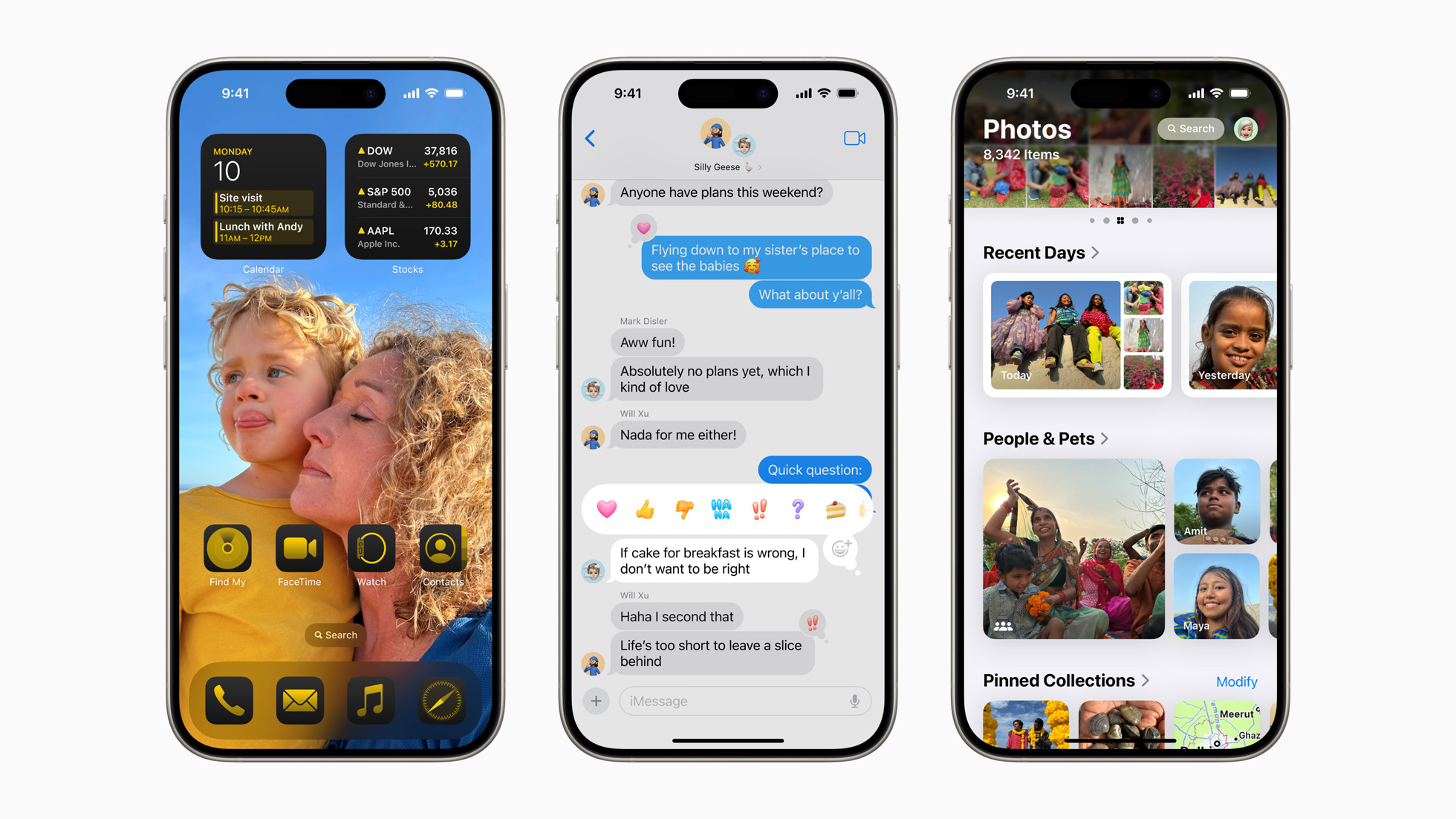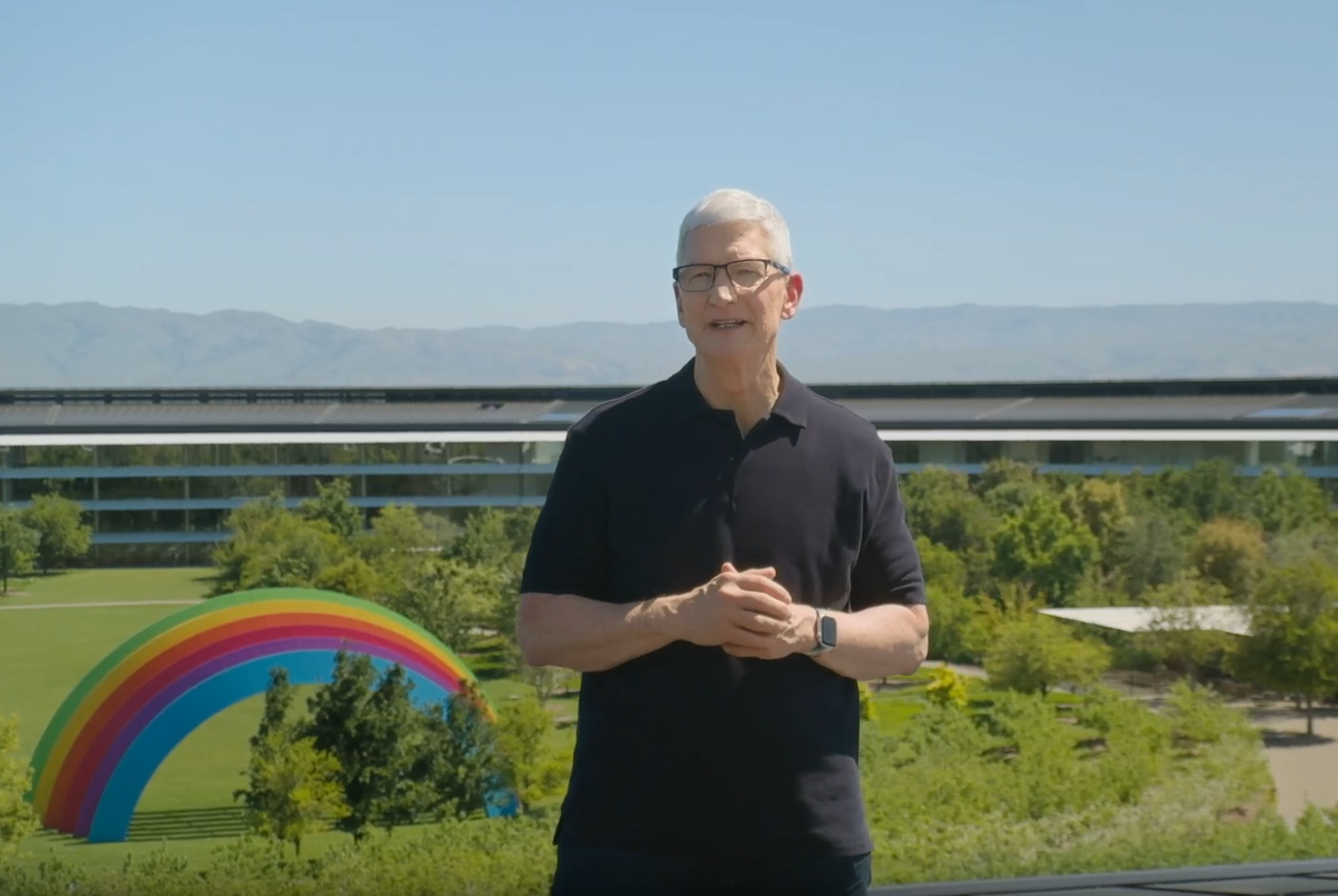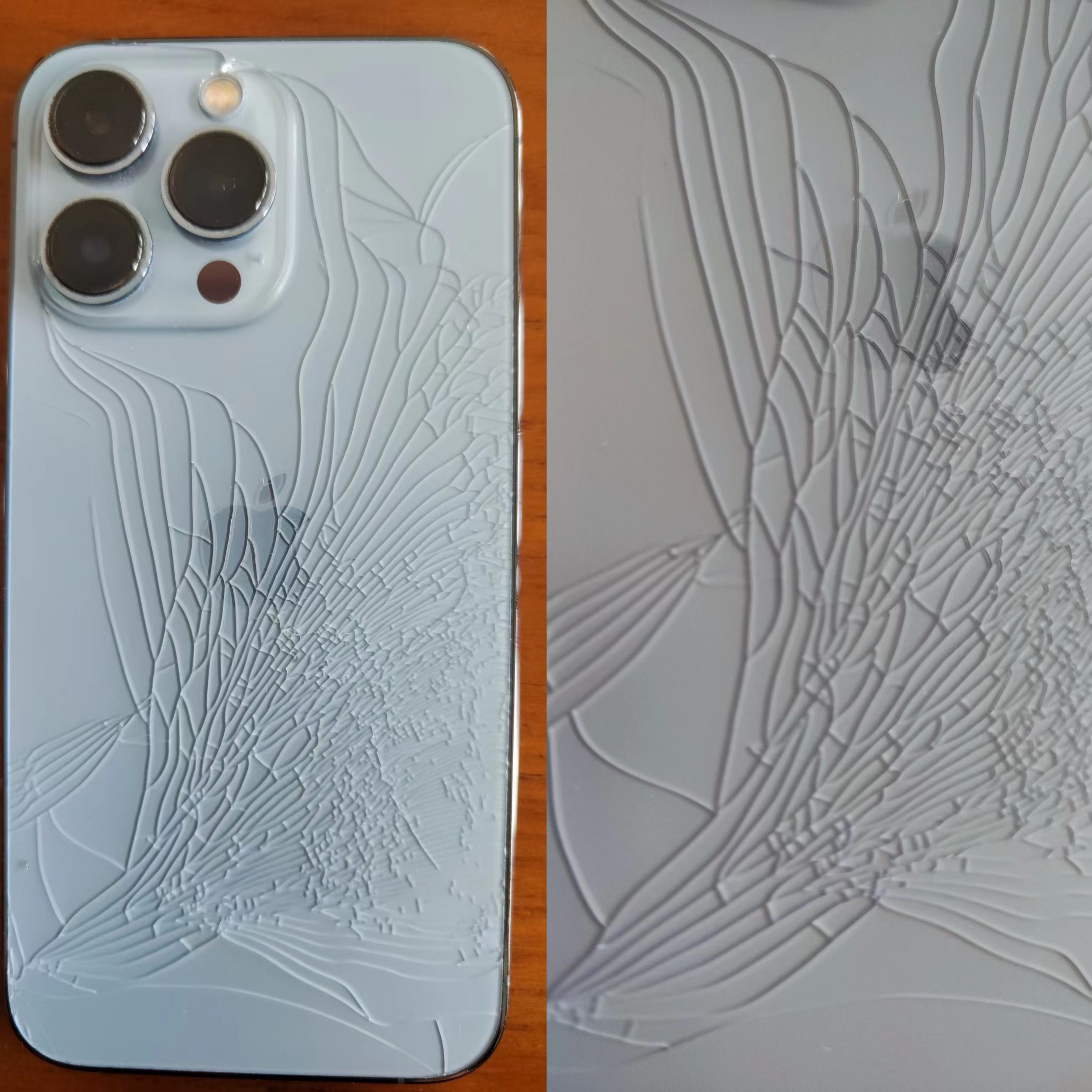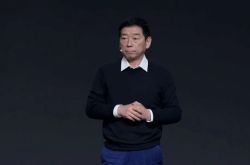After watching Apple's WWDC24 event, netizens said, "Immediately going to buy an iPhone 15 Pro"
![]() 06/12 2024
06/12 2024
![]() 636
636
After technology companies such as Microsoft, Google, NVIDIA, Meta, and Amazon made the concept of "AI" widely known and popular, Apple, one of the "seven sisters of US stocks," has finally caught up with the "AI" wave. Although it's late, Apple doesn't seem to be embarrassed or blush at all.
At the WWDC24 global developers conference early this morning, Apple redefined "AI" by introducing a new concept called Apple Intelligence, rather than the commonly recognized Artificial Intelligence (AI for short). Apple Intelligence will provide numerous AI-related features for devices like iPhone and Mac. To avoid confusion, it is recommended that media professionals use the full name "Apple Intelligence" when referring to it in the future, rather than the abbreviation "AI".

Similar to Apple's new iPhone launches, after the WWDC24 event, Apple also faced controversies about "copying" or lagging behind. For example, call recording functionality has been available on phones from Huawei, Honor, Xiaomi, vivo, OPPO, and other manufacturers for years. How many years has Apple been late? Another example is the lock screen's camera and flashlight buttons finally supporting customization, and the ability to freely arrange app icons on the desktop, which other phone manufacturers have already implemented.
However, I have also seen users mention on social media that after watching the event, they immediately went to an Apple store to buy an iPhone 15 Pro.
This sense of division in Apple is not seen at all in hardware manufacturers like Honor, Xiaomi, vivo, and OPPO. The reason for this situation has a lot to do with whether you are a typical Apple user.
Deep Apple users have a very profound perception of every innovation from Apple. They know what problems this innovation can help them solve. However, for non-deep users or users of manufacturers like Huawei, Honor, Xiaomi, vivo, and OPPO, their perception of Apple's innovations is not as high. On the one hand, they haven't experienced it; on the other hand, manufacturers like Huawei, Xiaomi, vivo, and OPPO have also done very well in terms of innovation, such as AI-generated images, AI removal, and other small features. While Apple may indeed do well in some aspects, they are not as essential, so whether you are a typical Apple user determines your perspective on Apple's various innovations and upgrades.
At the Apple WWDC24 event, the main topics mentioned were visionOS, iOS 18, iPadOS 18, watchOS 11, and macOS updates. This article will mainly discuss Apple's updates in iOS 18.
The main updates in iOS 18 are:
1. Customizable app icons. Users can place apps and widgets anywhere on the home screen. App icons and widgets can change their appearance through dark or color effects, such as having all apps in green or red.
2. Control Center and hidden apps: iOS 18's Control Center has added quick components, as well as a hidden app folder.
3. The Photos app gets a unified view, new photo albums, and customization options, allowing users to better manage their photo libraries.
4. The messaging function has been updated, with iMessages supporting custom font styles, emojis, and scheduled sending.
5. Enhanced Mail app functionality.
6. Lock and hide app features protect user privacy.
7. Apple Intelligence is deeply integrated into iOS 18.
8. Siri has been updated to support contextual conversation.
9. Safari browser updates can display key information from web pages.
10. Map updates include the addition of hiking routes and support for game mode.
11. The Notes app supports new features for recording emotions, tracking goals, and searching.
12. Eye tracking functionality has been introduced, which is designed specifically for users with disabilities.
In addition to the above, updates have also been made to Apple Pay, voice shortcuts, music haptics, Calendar app, Health app, Home app, and more.

The developer beta version of iOS 18 is currently being pushed out, but it only supports the iPhone 15 Pro and iPhone 15 Pro Max. This is why the netizens mentioned earlier were "eager" to get an iPhone 15 Pro. However, the official version of iOS 18 will support a wide range of devices, including all models released since the iPhone XR in 2018.
Regarding updates, based on my past experience, it's best to be cautious when choosing to update to the iOS 18 beta version unless absolutely necessary. Some testers have already reported issues like desktop icon switching lag, so it's recommended to be cautious when updating your main device. Apple's new system beta versions tend to have some bugs, and I experienced rapid battery drain when I updated to iOS 17, so I'm still on iOS 16.3 and refusing to upgrade.
With over a billion active users worldwide, every update to the iPhone not only affects ordinary users but also has a significant impact on developers, potentially even cutting off the paths of many developers. For example, the iOS 18 update will have a significant impact on note-taking apps, password management apps, image editing tools, and call recording tools. Apple not only provides these features for free but also potentially does a better job than third-party developers. In this scenario, the value of third-party tools is greatly reduced.
One of the most despised features by non-Apple fans at this year's WWDC24 is the iPhone mirroring function, which comes from the update on the new MacOS side. It allows users to mirror their iPhone's interface to their Mac and directly operate the iPhone on the Mac. Similar mirroring functionality has been available on Huawei and Honor devices for a long time, so Apple is once again "copying homework".
Apple actually started its efforts in AI very early. At the 2016 WWDC event, Apple released Siri, its intelligent voice assistant. Unfortunately, Siri has been unsatisfactory in terms of intelligence for many years, leading to its long-term "dusty" status. Until the new AI wave emerged, Apple finally decided to focus on AI. Apple also mentioned Siri's update this time, which integrates OpenAI's ChatGPT functionality and has screen sensing capabilities, allowing for deep interaction with apps. Siri's embodiment in AI will directly test Apple's improvement and innovation in this area.
Judging from the information currently available, the updates in iOS 18 can be described as "not groundbreaking" or "as expected." There are many small updates, but nothing that will "blow people's minds." But regardless of whether it's "copying homework" from Android, at least it's more convenient to use, which is somewhat reassuring for Apple fans.
Generally speaking, hardware updates have a stronger impact and perception on users, while software and system updates tend to lag behind. Only after actually using them do we know if they are good or not. Moreover, word-of-mouth about software and systems doesn't spread as widely as hardware. For non-Apple fans, their perception is still stuck in the stage of Apple's system being unusable. However, Apple's advantage in software and systems is deeper and more profound. Some users who have tried other hardware devices eventually return to Apple.

Not everyone who watches Apple's autumn phone launches is an Apple fan, but those who watch the WWDC24 event are mostly Apple fans. Only Apple fans truly care about whether Apple's software and systems are usable and what updates they have received. For the giant Apple, whether there is a "mind-blowing" explosive performance may not be that important. What's important is how to稳住this wave of true Apple fans through incremental innovation and ensure normal, stable, and reliable updates.
It has to be said that Apple is still a bit sneaky. iOS 18 requires the iPhone 15 Pro and iPhone 15 Pro Max to experience, forcing old users to buy new Apple phones. It's up to you to decide if you're willing to fall for this trick.
Written by Guo Jing, WeChat public account: Guo Jing's Internet Circle






